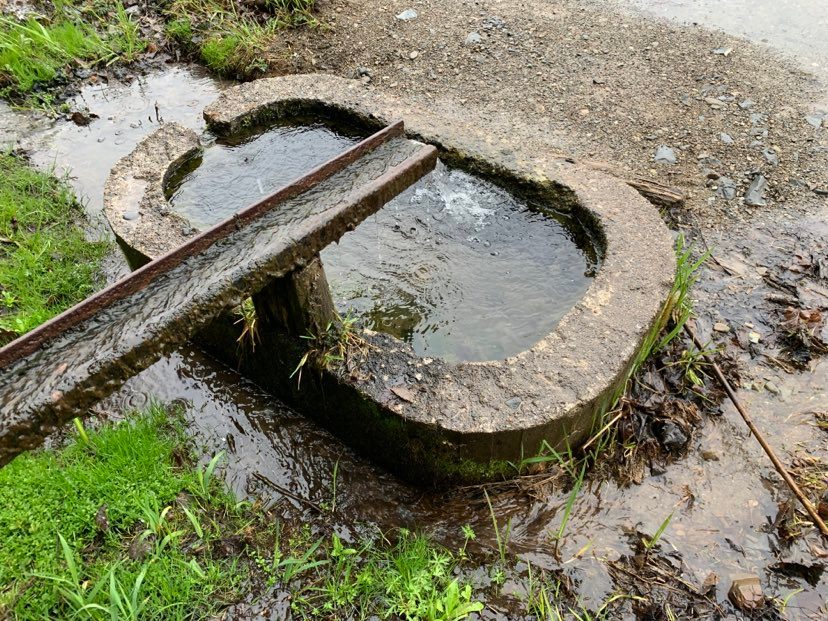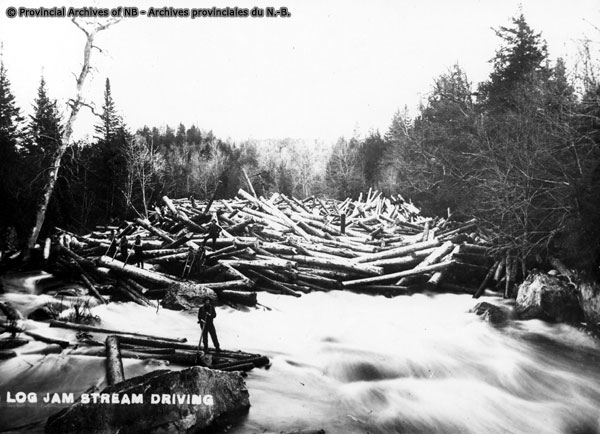Strength of Character
“Ira Gosman was a Black man and very very strong. He had ordered a barrel of pork down at the Marysville Store. And, from the house, the road came down crooked before it came out to the main road. The fellows from the store did’nt see the road and drove clear up, almost to where Salome’s Tub is. There was just a path up over the hill from the tub. And they hollered up, and Ira came down to the tub. They said jokingly ‘If you can carry this barrel up the hill, we’ll give it to you.’ Now, if I’m not mistaken, a barrel of pork was 240 pounds, salt pork, you see. Ira said ‘We’ll see what we can do.’ He just reached around and grabbed that barrel and put it on his shoulder and walked up there. When he got up he turned around and waved his hand and said ‘Thanks, boys.'”
– Walter Wade, Penniac, 1983

“Salome’s Tub” can still be found in Penniac, New Brunswick. It was named after Salome Gosman, who once lived nearby.
On the roadside in Penniac can be found a natural spring at the base of a steep wooded hill, which empties into a stone tub known as “Salome’s Tub”. Here marks the property where Ira and Salome Gosman once lived, with their family of seven children.
Ira Gosman was a descendant of John and Rose Gozman (Gosman), whose names are listed in the Book of Negroes (Measha BrueggarGosman-Lee is a direct descendant of Ira and Salome, who were her Great Great Grandparents). Ira’s wife Salome was the granddaughter of Simon Lomax Eatman, one of the founding settlers of Elm Hill in Queens County; Salome was also a cousin to First World War veterans Eldridge and Manzer Eatman, who were born in Zealand.
Ira and Salome Gosman became legendary on the Nashwaak for their kindness, determination, and strength. They first came to Penniac in 1860, when Ira was granted 100 acres near Campbell Creek (he later sold to this lot to his brother Murray); it was also around this time that they settled on the property now commemorated by Salome’s Tub; when Salome lived here, each day she would gather water from her well that flowed out from the base of her hill.
Ira Gosman was known to be a kind man, who was incredibly strong. He worked on the log drives, as well as the stone quarries of Marysville, and is said to have been “a cat on the logs”. He was also a “real gentleman”, who withstood a great deal of racial abuse, and once even saved a man’s life—although the individual had treated him very unkindly.

Clearing a log jam was very dangerous work. Ira Gosman was known to be a “cat on the logs”, circa 1890.
Ira and Salome Gosman are buried in the Alexander Gibson Memorial Cemetery in Marysville. Although their graves are unmarked, their memory lives on in the never-ending flow of Salome’s well.

